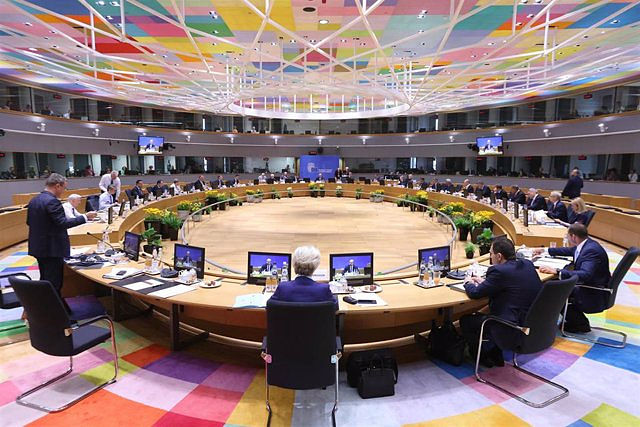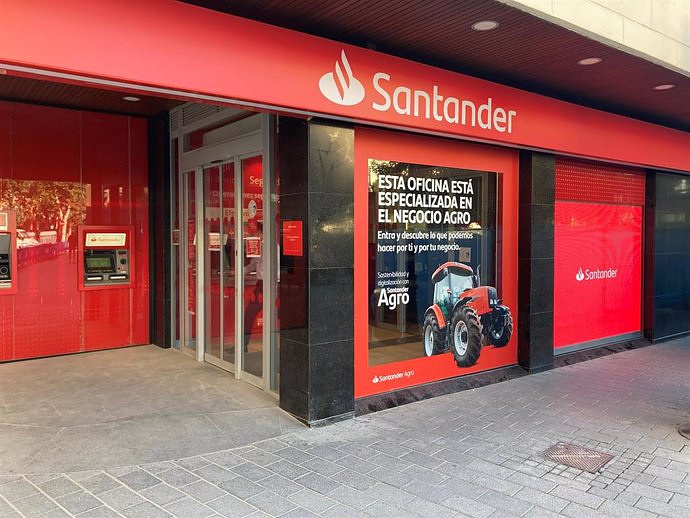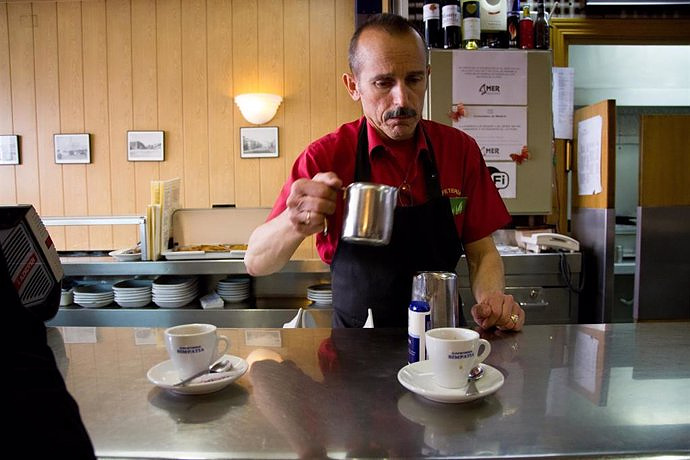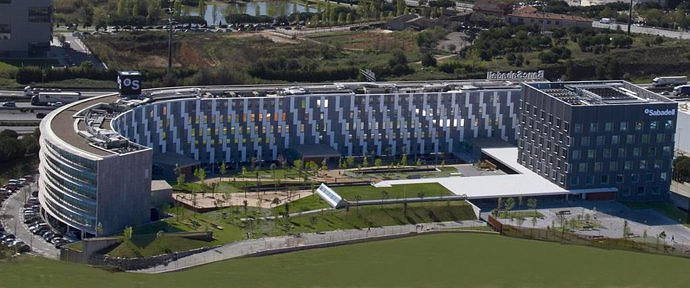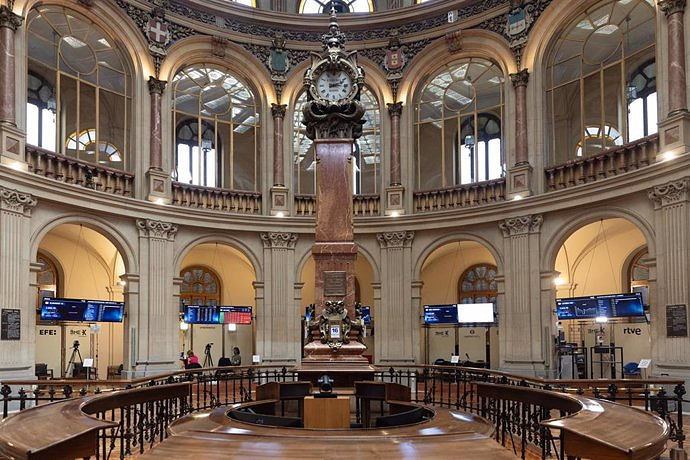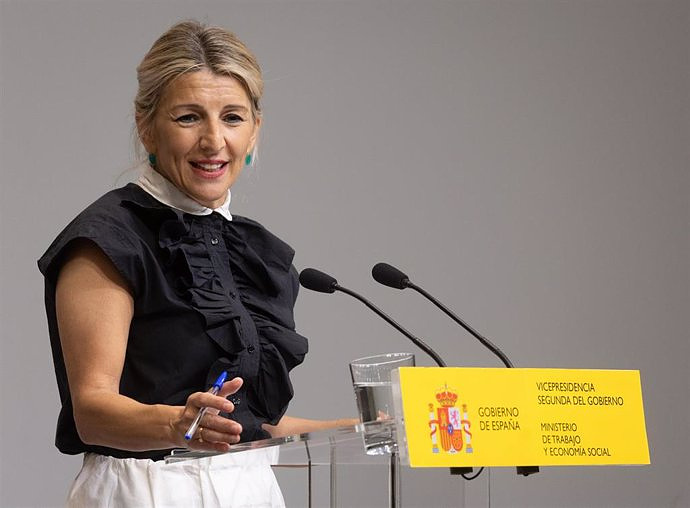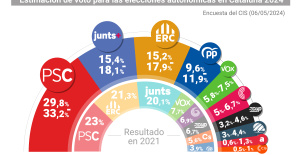BRUSSELS, July 16. (EUROPEAN PRESS) -
The leaders of the European Union and the Community of Latin American and Caribbean States (CELAC) will meet this Monday and Tuesday for the first time in eight years to "recalibrate" a strategic partnership that has been neglected in recent times, and they will do so in a summit in Brussels that was called to be the scene of harmony in the political, economic and commercial spheres but that runs the risk of being tarnished due to fundamental differences in matters such as the finalization of the commercial agreement between the 27 and Mercosur.
It is a "political" meeting where the two regions agree that it is not the place for trade negotiations, but a "dynamic" forum where bilateral meetings between leaders are encouraged and offer a "catalyst" for the development of projects and investments that favor the digital and ecological transition.
A prior business forum will also take place in which companies from both sides of the ocean will be present, including several Spanish ones such as Iberdrola, Telefónica or Hispasat, and which will be inaugurated by the President of the Government, Pedro Sánchez, the President of Brazil, Luiz Inácio Lula da Silva, and the President of the European Commission, Ursula von der Leyen.
Not surprisingly, the third EU-CELAC summit in history comes at a time when the influence of China and Russia in the Latin American region worries Europe, which is still the main investment partner in Latin America but aspires to strengthen ties due to the need to break its dependence on energy and raw materials after the tensions with Beijing and Moscow since the Russian invasion of Ukraine.
In this context, the summit in Brussels will be the framework for the signing of new energy agreements with Argentina and Uruguay and critical raw materials with Chile, according to community sources, but it will also serve to take stock of the fundamental trade agreements that the European Union It aspired to close this semester, taking advantage of the push of the Spanish presidency of the Council of the EU, but that has not yet taken off.
After several years to modernize relations with Chile and Mexico, with whom the EU already had a particular framework of relations, only the political and commercial pact with Chile seems to have reached the final phase and the proposal for its final signing is already on the table. the table of countries, with options to be concluded before the end of the year.
They also opted for that calendar for Mexico but the process is not so advanced and, although the will to close it this 2023 is maintained, the agreement is not mature.
However, the difficulties to advance in the pact between the European Union and Mercosur --Brazil, Argentina, Paraguay and Uruguay--, whose agreement was announced in 2019 after two decades of negotiations but which has been at a standstill since then, cloud the Euro-Latin American appointment and complicate the drafting of the final declaration.
Spain aspired to be able to announce the unblocking during its semester of European presidency and Brussels insists that there is a historic "window of opportunity" to seal this commercial relationship, with no margin to "reopen" the agreement but with additional environmental safeguards on the table that the Mercosur countries have not liked it and that they have not convinced France and Austria to lift their traditional rejection of the pact.
In the absence of the Southern Cone bloc responding in the "coming weeks" to the latest European proposal to salvage the agreement, Lula said a week ago about the community document that it is "unacceptable" and criticized that "strategic partners do not negotiate based on distrust and the threat of sanctions". The Mercosur countries will not accept the "eternal role of exporters of raw materials, minerals and oil," he stressed.
On the other hand, France considers inalienable its demand that the mechanism that the EU tries to reach an agreement with Mercosur against deforestation and with additional environmental commitments includes what it defines as "mirror clauses", to guarantee that the producers of that region that export to Europe under the new agreement are held to the same "extremely high" standards that are imposed on European farmers and ranchers.
"It is a matter of coherence and justice," sources from the Elysee warn to make it clear that Paris will maintain its reservation to the conclusion of the agreement with Mercosur as long as its conditions are not guaranteed.

 Exploring Cardano: Inner Workings and Advantages of this Cryptocurrency
Exploring Cardano: Inner Workings and Advantages of this Cryptocurrency Seville.- Economy.- Innova.- STSA inaugurates its new painting and sealing hangar in San Pablo, for 18 million
Seville.- Economy.- Innova.- STSA inaugurates its new painting and sealing hangar in San Pablo, for 18 million Innova.- More than 300 volunteers join the Andalucía Compromiso Digital network in one month to facilitate access to ICT
Innova.- More than 300 volunteers join the Andalucía Compromiso Digital network in one month to facilitate access to ICT Innova.-AMP.- Ayesa acquires 51% of Sadiel, which will create new technological engineering products and expand markets
Innova.-AMP.- Ayesa acquires 51% of Sadiel, which will create new technological engineering products and expand markets The Prado will exhibit Caravaggio's 'Ecce Homo' from May 28 after a temporary loan agreement with Conalghi
The Prado will exhibit Caravaggio's 'Ecce Homo' from May 28 after a temporary loan agreement with Conalghi The judge officiates the UCO of the Civil Guard in the case against Begoña Gómez for alleged influence peddling
The judge officiates the UCO of the Civil Guard in the case against Begoña Gómez for alleged influence peddling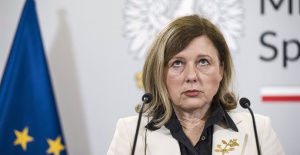 Brussels sees no more risk for the rule of law in Poland and is preparing to close the sanctioning file
Brussels sees no more risk for the rule of law in Poland and is preparing to close the sanctioning file The PP calls to mobilize on May 26 against the amnesty, the "hoaxes" and the "suspicion of corruption" of the Government
The PP calls to mobilize on May 26 against the amnesty, the "hoaxes" and the "suspicion of corruption" of the Government How Blockchain in being used to shape the future
How Blockchain in being used to shape the future Not just BTC and ETH: Here Are Some More Interesting Coins Worth Focusing on
Not just BTC and ETH: Here Are Some More Interesting Coins Worth Focusing on UMH researchers are working on a high-quality apricot crop that requires less irrigation water
UMH researchers are working on a high-quality apricot crop that requires less irrigation water The UPV develops an application to improve the quality of life of patients with glioblastoma
The UPV develops an application to improve the quality of life of patients with glioblastoma A sensor system obtains the fingerprint of essential oils and detects if they have been adulterated
A sensor system obtains the fingerprint of essential oils and detects if they have been adulterated Faraday UPV presents the 'Origin' rocket to exceed 10 km of flight: "It is the beginning of the journey to space"
Faraday UPV presents the 'Origin' rocket to exceed 10 km of flight: "It is the beginning of the journey to space" A million people demonstrate in France against Macron's pension reform
A million people demonstrate in France against Macron's pension reform Russia launches several missiles against "critical infrastructure" in the city of Zaporizhia
Russia launches several missiles against "critical infrastructure" in the city of Zaporizhia A "procession" remembers the dead of the Calabria shipwreck as bodies continue to wash up on the shore
A "procession" remembers the dead of the Calabria shipwreck as bodies continue to wash up on the shore Prison sentences handed down for three prominent Hong Kong pro-democracy activists
Prison sentences handed down for three prominent Hong Kong pro-democracy activists ETH continues to leave trading platforms, Ethereum balance on exchanges lowest in 3 years
ETH continues to leave trading platforms, Ethereum balance on exchanges lowest in 3 years Investors invest $450 million in Consensys, Ethereum incubator now valued at $7 billion
Investors invest $450 million in Consensys, Ethereum incubator now valued at $7 billion Alchemy Integrates Ethereum L2 Product Starknet to Enhance Web3 Scalability at a Price 100x Lower Than L1 Fees
Alchemy Integrates Ethereum L2 Product Starknet to Enhance Web3 Scalability at a Price 100x Lower Than L1 Fees Mining Report: Bitcoin's Electricity Consumption Declines by 25% in Q1 2022
Mining Report: Bitcoin's Electricity Consumption Declines by 25% in Q1 2022 Oil-to-Bitcoin Mining Firm Crusoe Energy Systems Raised $505 Million
Oil-to-Bitcoin Mining Firm Crusoe Energy Systems Raised $505 Million Microbt reveals the latest Bitcoin mining rigs -- Machines produce up to 126 TH/s with custom 5nm chip design
Microbt reveals the latest Bitcoin mining rigs -- Machines produce up to 126 TH/s with custom 5nm chip design Bitcoin's Mining Difficulty Hits a Lifetime High, With More Than 90% of BTC Supply Issued
Bitcoin's Mining Difficulty Hits a Lifetime High, With More Than 90% of BTC Supply Issued The Biggest Movers are Near, EOS, and RUNE during Friday's Selloff
The Biggest Movers are Near, EOS, and RUNE during Friday's Selloff Global Markets Spooked by a Hawkish Fed and Covid, Stocks and Crypto Gain After Musk Buys Twitter
Global Markets Spooked by a Hawkish Fed and Covid, Stocks and Crypto Gain After Musk Buys Twitter Bitso to offset carbon emissions from the Trading Platform's ERC20, ETH, and BTC Transactions
Bitso to offset carbon emissions from the Trading Platform's ERC20, ETH, and BTC Transactions Draftkings Announces 2022 College Hoops NFT Selection for March Madness
Draftkings Announces 2022 College Hoops NFT Selection for March Madness